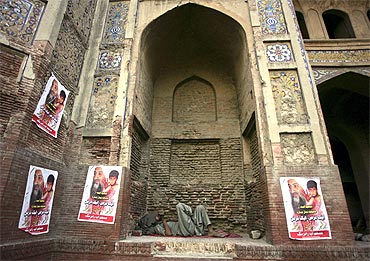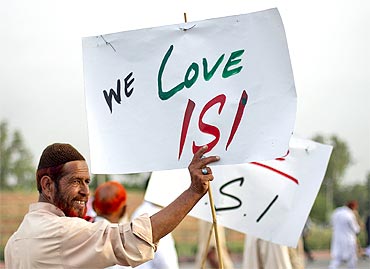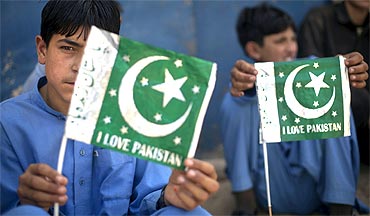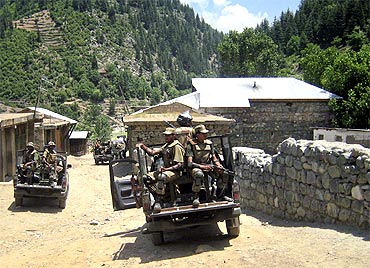 | « Back to article | Print this article |
How Pakistan army chief reacted to raid on Osama
Pakistani military leaders, including army chief General Ashfaq Kayani, were surprised to know that Osama bin Laden was hiding in their country when they were told about the American raid that killed the dreaded terrorist, according to an analysis of conversations conducted by the United States intelligence.
The US intelligence was particularly interested in learning how much surprise was expressed by Kayani and Inter Services Intelligence chief Lieutenant General Ahmed Shuja Pasha when they learnt of the bin Laden operation.
The intelligence agencies conducted a voice analysis of recordings of conversations to determine how genuine their surprise was, Washington Post's national security correspondent Karen DeYoung said.
'Pakistani military leaders were surprised'
"Of course, they (Pakistani military leaders) were surprised that Osama bin Laden was dead but the conclusion was that they also were surprised to know that he was there," she said while addressing the event Inside Pakistan's ISI, which was organised by the think tank Middle East Institute in Washington.
The Central Intelligence Agency is "constantly frustrated" by the ISI and has little knowledge of how it operates, DeYoung said.
She also highlighted a recent instance of militants evacuating two bomb-making factories in Waziristan tribal region shortly after US officials tipped off the Pakistani military about these facilities.
US, Pakistan to share intelligence inputs
US Special Representative Marc Grossman and CIA Deputy Director Mike Morrell met Kayani and Pasha during a recent visit to Islamabad and said the US was prepared to open a new level of intelligence-sharing with Pakistan, DeYoung said.
The American officials provided satellite video of the two IED factories in Waziristan, one run by the Haqqani network and the other by Al Qaeda operatives.
Within days of the meeting, US satellite surveillance showed the factories being evacuated.
ISI doesn't take orders from Pakistan PM
When the Pakistan army reached the location three weeks later, the facilities were abandoned, she said.
The panel for the event organised by the Middle East Institute also featured RAND Corporation senior political scientist Arturo Munoz and Atlantic Council's South Asia director Shuja Nawaz.
Describing the ISI's structure, Nawaz said the agency does not take instructions from Prime Minister Yusuf Raza Gilani because "the civilian government has ceded various aspects of policy to the military"



